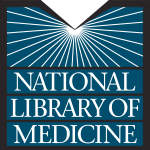- Industry: Library & information science
- Number of terms: 152252
- Number of blossaries: 0
- Company Profile:
The National Library of Medicine (NLM), on the campus of the National Institutes of Health in Bethesda, Maryland, is the world's largest medical library. The Library collects materials and provides information and research services in all areas of biomedicine and health care.
A disease or condition that affects the blood's ability to coagulate (clot) normally.
Industry:Health care
A disease that is caused by a microorganism, such as a bacterium, virus, or parasite, that is not normally found in the body and is capable of causing infection. Some, but not all, infectious diseases are contagious, meaning they can spread from person to person. Other infectious diseases can spread from animals or insects to humans, but not from person to person. HIV is both infectious and contagious.
Industry:Health care
A disease-causing virus or bacterium that is weakened in a laboratory so it cannot cause disease (or only mild disease). Live attenuated viruses are often used as vaccines because, although weakened, they can stimulate a strong immune response. However, because of remote possibility that a live attenuated virus could cause disease, people infected with HIV should not receive most live attenuated vaccines.
Industry:Health care
A disease-causing virus or bacterium that is weakened in a laboratory so it cannot cause disease (or only mild disease). Live attenuated viruses are often used as vaccines because, although weakened, they can stimulate a strong immune response. However, because of remote possibility that a live attenuated virus could cause disease, people infected with HIV should not receive most live attenuated vaccines.
Industry:Health care
A drug approved by the Food and Drug Administration (FDA) for sale in the United States. The extensive FDA drug approval process includes many steps, including laboratory and animal studies, clinical trials for safety and efficacy, filing of a New Drug Application by the drug manufacturer, FDA review of the application, and FDA approval or rejection of the application.
Industry:Health care
A drug made of short segments of DNA or RNA that can bind to and alter or suppress the function of viral DNA or RNA. Antisense antivirals prevent viruses from replicating.
Industry:Health care
A drug sponsor’s request to the Food and Drug Administration (FDA) for approval to test an investigational drug in humans. FDA review of an investigational new drug (IND) application ensures that the drug is safe for testing in humans and that testing will not put study participants at unreasonable risk.
Industry:Health care
A drug sponsor's request to the Food and Drug Administration (FDA) for approval to sell and market a new drug in the United States. A new drug application (NDA) includes enough information for the FDA to determine whether the new drug is safe and effective; whether the drug’s benefits outweigh its risks; whether the proposed drug label (package insert) is appropriate; and whether the drug manufacturing standards are adequate.
Industry:Health care
A drug that has the same active ingredients, dosage, formulation, safety, strength, route of administration, quality, effectiveness, and intended use as a brand-name drug. For example, ibuprofen is a generic drug that has several manufacturers and brand names, including Advil and Motrin. Generic drugs are usually less expensive than brand-name drugs.
Industry:Health care
A drug that is approved by the Food and Drug Administration (FDA) for testing in humans for a specified condition but not approved for commercial marketing and sale.
Industry:Health care
